
Social Media Strategy

Social Media Strategy

Social Media and Technology Trends

How Organizations Use Marketing

Marketing Defined

Marketing and Customer Relationships

Marketing in Action

Putting It Together

The Marketing Concept

The Value of Marketing
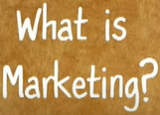
Teacher resources for Unit 1 can be found on the next page.

Marketing research may be divided into methods that emphasize understanding “the customer” and methods that emphasize understanding “the market.” This course (15.822) deals with the market. The companion course (15.821) deals with the customer.
The course will teach you how to write, conduct and analyze a marketing research survey. The emphasis will be on discovering market structure and segmentation, but you can pursue other project applications.
A major objective of the course is to give you some “hands-on” exposure to analysis techniques that are widely used in consulting and marketing research factor analysis, perceptual mapping, conjoint, and cluster analysis). These techniques used to be considered advanced but now involve just a few keystrokes on most stat software packages.
The course assumes familiarity with basic probability, statistics, and multiple linear regression.
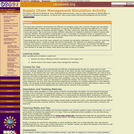
A free online simulation that demonstrated the bull-whip effect, and the complexities of supply chain management, responding to changes in customer demand.
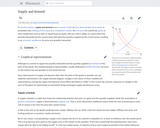
In microeconomics, supply and demand is an economic model of price determination in a market. It postulates that, holding all else equal, in a competitive market, the unit price for a particular good, or other traded item such as labor or liquid financial assets, will vary until it settles at a point where the quantity demanded (at the current price) will equal the quantity supplied (at the current price), resulting in an economic equilibrium for price and quantity transacted.
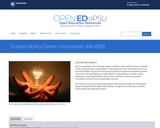
Are you prepared to find strategic opportunities for sustainability-driven innovation within your business or organization? This engaging course will prepare you to do just that. BA 850 will give you the tools and practical experience needed to discern consumer and organizational needs related to sustainability, to create unique offerings to meet sustainability needs, and to develop innovative processes necessary to test and refine sustainable solutions.
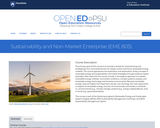
The primary goal of this course is to provide a toolset for characterizing and strategizing how nonmarket forces can shape current and future renewable energy markets. The course approaches the exploration and explanation of key concepts in renewable energy and sustainability nonmarket strategies through evidence-based examples. Main topics for the course include: a sociological approach to markets, renewable energy markets, nonmarket conditions, complex systems analysis, and renewable energy technology and business environments. Because renewable energy costs are higher than fossil fuel cost per unit of energy, the main arguments in support of renewable energy, thus far, are functionally nonmarket in character, i.e., environmental (e.g., climate change), political (e.g., energy independence), and/ or social (e.g., good stewardship).
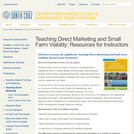
For farmers, growing crops is just one step in running a successful farm—making the farm or market garden economically viable requires another suite of skills, including finding land, planning what crops to grow, marketing the crops, and managing income and expenses. This resource builds on our experience educating hundreds of apprentice growers in organic production, farm and business planning, direct marketing at a roadside farm stand, and Community Supported Agriculture (CSA) management through hands-on training in the running of our 100-member CSA program. Teaching Direct Marketing and Small Farm Viability: Resources for Instructors is organized into six units, three focusing on marketing and three covering other topics related to making a small farm economically viable. Included are lessons and resources for running a CSA project, selling at farmers' markets, forming collaborative marketing groups and grower cooperatives, and selling to restaurants. Also covered are strategies to improve small farm planning, including enterprise visioning and market assessment; creating a business plan, including marketing and crop plans; and managing cash flow. Land tenure options such as cash-rent leases from non-profits, shared ownership models, conservation easements, and community land trusts are reviewed as additional mechanisms for addressing the complex issue of the economic viability of small-scale agriculture. This resource also reviews the trends and factors that influence small-scale agriculture's economics, and provides an overview of produce marketing in the U.S. The training manual is designed for – •Instructors at college and universities, agriculture organizations, farm-training programs, apprenticeship programs •Agricultural extension personnel •Farmers with interns •Growers, teachers, and organizers at urban farms, community gardens, and food projects with direct-marketing outlets This instructor's resource features class and field demonstration outlines, trainee exercises, and resource materials, with a focus on CSA. The manual can be used in a classroom setting or adapted for other training formats, such as short courses, conferences, and field days.

This course provides a series of strategic frameworks for managing high-technology businesses. The emphasis throughout the course is on the development and application of conceptual models which clarify the interactions between competition, patterns of technological and market change, and the structure and development of organizational capabilities.
This is not a course in how to manage product or process development. The main focus is on the acquisition of a set of powerful analytical tools which are critical for the development of a technology strategy as an integral part of business strategy. These tools can provide the framework for deciding which technologies to invest in, how to structure those investments and how to anticipate and respond to the behavior of competitors, suppliers, and customers. The course should be of particular interest to those interested in managing a business for which technology is likely to play a major role, and to those interested in consulting or venture capital.

This course provides you with a framework to understand the structure and dynamics of high-tech businesses, together with an approach for their effective strategic management. It is focused on domains in which systems are important, because either or both products are parts of larger and more complex systems, or they are comprised of systems. The domains covered include computing, communications (in particular the mobile and IP domains), consumer electronics, industrial networking, automotive, aerospace and medical devices. The course will be of particular interest to those interested in managing a business in which technology will likely play a major role, and also to those interested in investing in or providing counsel to these businesses.
The emphasis throughout is on the development and application of ways of thinking or mental models that bring clarity to the complex co-evolution of technological innovation, the demand opportunity, systems architecture, business ecosystems, and decision-making and execution within the business.

This course covers how to leverage major technology advances to significantly transform a business in the marketplace. There is a focus on major issues a business must deal with to transform its technical and market strategies successfully, including the organizational and cultural aspects that often cause such business transformations to fail. Class material draws from concrete experiences of IBM’s major transformation in the late 1990s, when it aggressively embraced the Internet and came up with its e-business strategy.
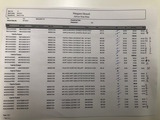
1..2..3..4..